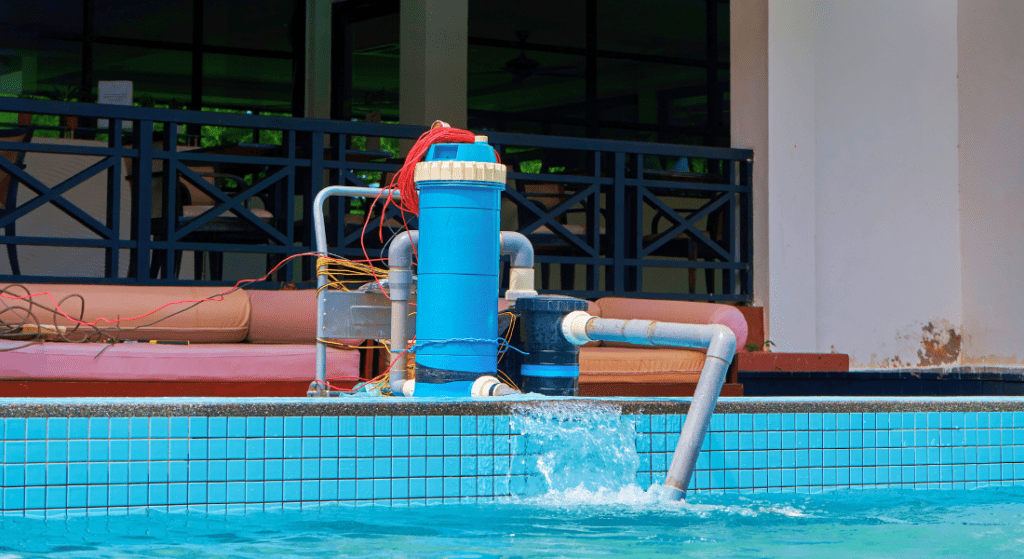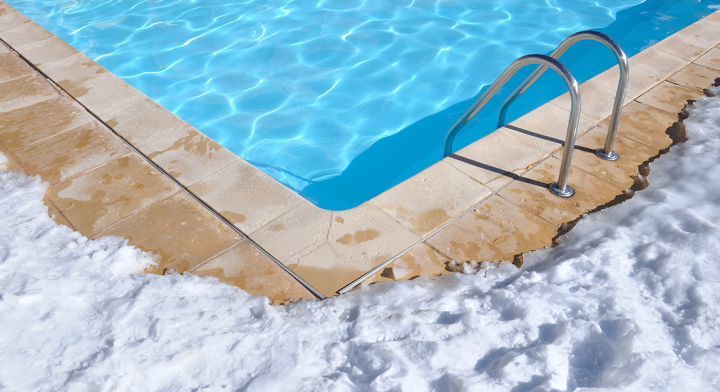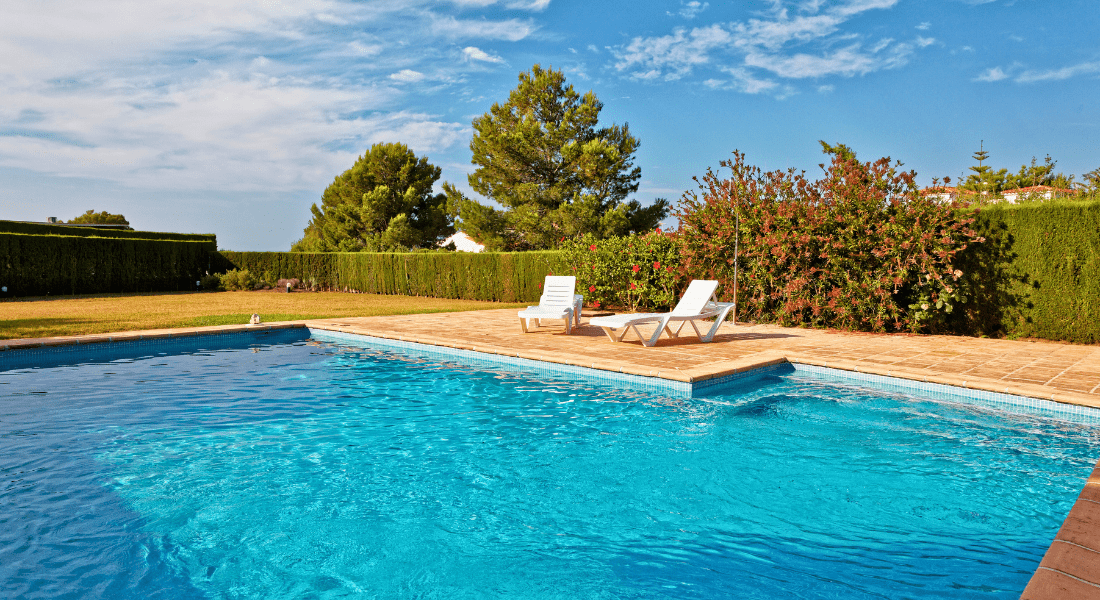Swimming pools are a fantastic addition to any home, providing a space for exercise, relaxation, and family fun. However, being a pool owner or considering installing one comes with its own set of questions and considerations. From maintenance to safety, there’s a lot to learn about the world of swimming pools. In this article, we’ll address some of the most frequently asked questions about swimming pools to provide you with the pool help and swim guide you need.
Table of Contents
ToggleUnderstanding the Basics of Pool Ownership
What Types of Pools Are There?
When it comes to choosing a swimming pool, there are several types to consider. In-ground pools are permanent structures that can be made from materials like concrete, fiberglass, or vinyl. Above-ground pools are less expensive and can be disassembled and moved. Additionally, there are lap pools for exercise, saltwater pools that use salt instead of chlorine to sanitize the water, and infinity pools that give the appearance of water extending to the horizon.
How Much Does It Cost to Install a Swimming Pool?
The cost of installing a pool can vary widely depending on the type, size, materials, and additional features like decks, covers, or heating systems. On average, installing an in-ground pool can range from $35,000 to $60,000, while above-ground pools typically cost between $1,000 and $8,000. It’s important to also consider ongoing maintenance costs when budgeting for a pool.
Maintenance and Upkeep
How Do I Keep My Pool Water Clean?
Maintaining clean and clear water is essential for any pool owner. Regularly checking and balancing the pH, chlorine levels, and other chemical components is crucial. Additionally, skimming debris, brushing the pool walls, and vacuuming the pool floor will keep the water inviting and safe for swimmers. It’s also important to regularly clean or replace pool filters to ensure proper water filtration.
How Often Should I Test My Pool Water?
Testing your pool water at least once a week is recommended to keep chemical levels balanced. During peak swimming season or after heavy pool use, it’s advisable to test the water more frequently.
What Is the Best Way to Heat My Pool?
There are several options for heating your pool, including gas heaters, electric heat pumps, and solar heaters. The best option depends on your climate, pool size, and personal preferences. Solar heaters are environmentally friendly and cost-effective over time, while gas heaters provide rapid heating and are ideal for quick temperature adjustments.
Safety and Regulations
What Safety Precautions Should I Take?
Swimming pool safety is paramount. Always supervise children and non-swimmers around the pool. Installing barriers like pool fencing, safety covers, and alarms can prevent accidental falls into the pool. Additionally, make sure to keep rescue equipment nearby and ensure all family members know basic water safety and swimming skills.
Are There Specific Regulations I Should Be Aware Of?
Pool regulations can vary by location, so it’s important to check with your local government or homeowners’ association. Common regulations include fencing requirements, noise ordinances, and restrictions on pool size or location on your property.
Enjoying Your Pool
How Can I Make My Pool Area More Enjoyable?
Enhancing your pool area can turn it into a personal oasis. Consider adding comfortable lounging furniture, outdoor lighting, and landscaping to create a relaxing atmosphere. For entertainment, you could install a diving board, water slide, or poolside sound system. Remember to balance fun features with the available space and your budget.
Can I Use My Pool Year-Round?
In some climates, it’s possible to enjoy your pool year-round with the help of pool heaters and covers. In colder regions, pools may need to be winterized and closed during the off-season to protect against freezing temperatures and damage.
Troubleshooting Common Pool Problems
Why Is My Pool Water Cloudy?
Cloudy pool water can be due to several factors, including imbalanced chemicals, poor filtration, or algae growth. To clear up cloudy water, verify chemical levels, ensure your filter is working correctly, and shock the pool if necessary to kill any algae or bacteria.
What Should I Do If I Notice a Leak?
If you suspect your pool is leaking, perform a bucket test to confirm. Place a bucket filled with water on a pool step and mark the water levels inside and outside the bucket. After 24 hours, if the pool water level has dropped more than the water inside the bucket, there’s likely a leak. In this case, it’s best to contact a professional to locate and repair the leak.
How Do I Handle Algae Problems?
Preventing algae starts with proper pool maintenance, including maintaining chemical balance and regular cleaning. If algae do appear, you’ll need to shock your pool, scrub the algae from the walls and floor, and run your filter until the water clears. Some pool owners also use algaecides as a preventative measure.
Advanced Pool Care
How Can I Make My Pool More Eco-Friendly?
To create a more eco-friendly pool, consider using a solar cover to reduce water evaporation and heat the pool naturally. Investing in energy-efficient pumps and LED lighting can also reduce energy consumption. Additionally, saltwater pools are considered more eco-friendly since they require fewer chemicals.
What Are the Latest Trends in Pool Technology?
The latest trends in pool technology focus on convenience and efficiency. Automated pool systems allow you to control lighting, heating, and cleaning schedules from your smartphone. Robotic pool cleaners handle the cleaning with minimal effort, and smart pumps optimize energy use for filtration and heating.
How Do I Maintain Pool Water Quality?
Maintaining pool water quality is crucial for both safety and enjoyment. Pool water must be balanced to prevent problems like algae growth and equipment damage.
First, regularly test the water using a test kit to measure pH level, chlorine level, total alkalinity, and calcium hardness. The pH level should be between 7.2 and 7.8 to ensure the water is neither too acidic nor too basic. If your pool pH is too high then you need to lower it. Check out this guide on How To Lower Pool pH Without Chemicals.
Next, add pool chemicals such as chlorine to sanitize the water. Chlorine levels should be kept between 1-3 ppm to kill bacteria and other harmful organisms. You may also need to add a pool shock treatment periodically to keep the water clear.
Finally, ensure that your pool filter and pump are functioning correctly to maintain water clarity and circulation. The pool filter removes debris, while the pump keeps the water moving to distribute chemicals evenly.
How Often Should I Test My Pool Water?
Regular testing of your pool water is essential to maintain a healthy swimming environment. The frequency of testing depends on pool usage and environmental factors. For most residential swimming pools, testing should be done at least twice a week during the swimming season. This ensures that you can promptly address any imbalances in water chemistry.
If the pool is heavily used or if there has been heavy rainfall, it’s a good idea to test the water more frequently. Rain can introduce contaminants and dilute the chemicals, affecting the water balance. During the off-season, test the water monthly to ensure the chemicals remain balanced and to prevent any issues that could arise from long periods of inactivity.
What Is the Ideal Chlorine Level for My Pool?
Chlorine is a critical component of pool maintenance, as it kills bacteria and keeps the water safe for swimming. The ideal chlorine level in a pool should be maintained between 1-3 ppm (parts per million). To ensure proper chlorine levels, regularly use a test kit and add chlorine as needed. You can use chlorine tablets, granules, or liquid chlorine, depending on your preference and pool needs.
In addition to maintaining regular chlorine levels, you should periodically shock the pool. Pool shock involves adding a large dose of chlorine to the water to eliminate any buildup of contaminants that regular chlorination might miss.

How Does a Pool Pump Work?
The pool pump is an essential part of your pool’s circulation system. It keeps the water moving, which helps distribute chemicals and remove debris. The pump works by drawing water from the pool through the skimmer and main drain. The water then passes through the pool filter, which traps debris and particles. Finally, the clean water is returned to the pool through the return jets.
To ensure your pump is working efficiently, regularly check the skimmer basket and pump basket for debris. Also, make sure the water level in the pool is adequate to prevent air from entering the system, which can cause the pump to lose its prime.
What Are Common Pool Care Mistakes?
Even experienced pool owners can make mistakes in pool care. Avoiding these common pitfalls can help you maintain a clean and safe swimming environment. One common mistake is neglecting to regularly test and balance the pool water. Without proper chemical levels, the water can become unsafe and damage the pool equipment. Another mistake is failing to clean the pool regularly. Debris and algae can accumulate quickly, affecting water clarity and sanitation. Skim the surface daily, vacuum the pool floor weekly, and brush the pool walls to prevent buildup.
Lastly, many pool owners overlook the importance of maintaining the pool pump and filter. Regularly clean and replace the filter cartridge, and ensure the pump is running efficiently to keep the water circulating and clean.
How Do I Prevent Algae Growth in My Pool?
Algae growth is a common issue for pool owners, but it can be prevented with proper maintenance. Algae can turn your pool water green and make surfaces slippery and unsafe. To prevent algae, maintain proper chlorine levels and water balance. Algae thrive in water that is low in chlorine and unbalanced in pH and alkalinity.
Regularly shock the pool to kill any algae spores before they have a chance to grow. Brushing the pool walls and floor also helps to remove any algae that may be starting to form.
Additionally, ensure good water circulation by running your pool pump for at least 8-12 hours a day. This helps distribute chemicals evenly and prevents stagnant water where algae can grow.
What Should I Do About Pool Leaks?
Pool leaks can be a major concern, leading to water loss and damage to the pool structure. Detecting and fixing leaks promptly is crucial. First, check for obvious signs of leaks, such as wet spots around the pool area or a sudden drop in water level. You can also use the bucket test: fill a bucket with pool water, place it on the pool step, and mark the water level inside and outside the bucket. If the pool water level drops more than the bucket water level, you may have a leak.
Once a leak is detected, inspect the pool equipment, including the pump, filter, and plumbing, for any visible damage. If the leak is in the pool structure, it may require professional repair.
How Can I Heat a Pool Efficiently?
Heating a pool allows you to extend the swimming season and enjoy your pool even in cooler weather. There are several efficient ways to heat a pool. Solar pool heaters use the sun’s energy to warm the water. They are eco-friendly and cost-effective in the long run, though they require a significant initial investment and depend on sunny weather. Heat pumps are another efficient option. They extract heat from the air and transfer it to the pool water. Heat pumps are more energy-efficient than traditional gas heaters and can operate in various weather conditions.
For quick heating, gas pool heaters are the best option. They can heat the pool water rapidly, making them ideal for occasional use or quickly raising the temperature for a pool party.

How Do I Winterize My Pool?
Winterizing your pool is essential to protect it from damage during the cold months and ensure it’s ready for use when the swimming season returns. Start by thoroughly cleaning the pool, including skimming debris, vacuuming the floor, and brushing the walls. Balance the water chemistry to prevent corrosion and scale buildup during the winter. Lower the water level to below the skimmer and return lines to prevent freezing and damage. Drain the pump, filter, and other pool equipment to remove any remaining water.
Finally, cover the pool with a durable pool cover to keep out debris and protect it from the elements. Make sure the pool cover is secure and free of any standing water. For a comprehensive guide on how to close your pool properly, we recommend checking out our detailed blog post: How To Close a Pool For The Winter.
Final Thoughts
Whether you’re a current pool owner or contemplating the addition of a pool to your property, having the right information is key to a successful and enjoyable swimming pool experience. By understanding the types of pools, maintenance requirements, safety precautions, and troubleshooting common issues, you can ensure your pool remains a source of joy and relaxation for years to come.
Remember, regular maintenance, safety, and staying informed about your pool’s needs are the best ways to enjoy your swimming pool to the fullest. Dive into pool ownership with confidence, knowing you’re equipped with the knowledge to handle the most common swimming pool frequently asked questions.


